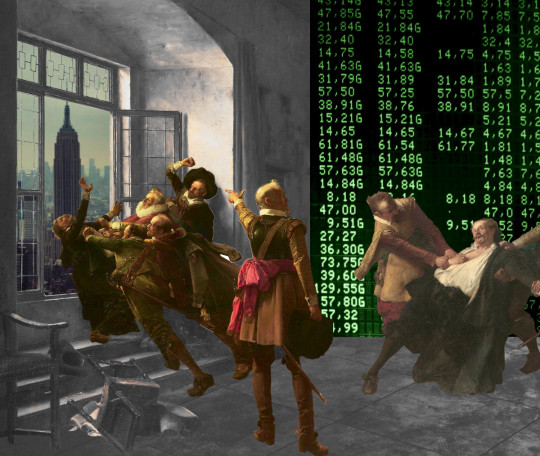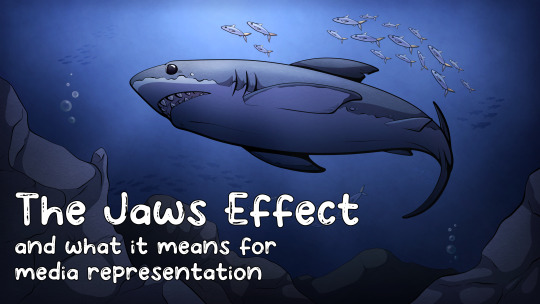#Media and Entertainment Law
Text
the number one most interesting analysis anyone ever made about the legend of korra is that the benders in republic city were clearly an oppressed and exploited population. NOT the non-benders. and therefore the equalists are nothing more than essentially a nazi party or kkk or other hate group that likes to masquerade itself as the victims to a scapegoat minority that is somehow a danger to normal people in order to oppress and eradicate them.
the most compelling evidence that benders actually represent and function as marginalized people is that they occupy characteristic marginalized roles in society. organized crime, factory laborers, pro-sports, music and film entertainment. (ESPECIALLY the more physically taxing high impact sports such as boxing and football!! the fighting ring nature of pro-bending absolutely reflects this. this is no golf tournament). with those roles that offer any hope of upward mobility being limited to only a few and as inherently exploited by producers as it is. or otherwise abject poverty in city slums.


non benders such as Mr. Sato own large successful corporations. benders do labor for him. benders do cheap manual labor for low pay in the early 20th century steampunk metaphor city and live in slums. while the ruling class non-bender turned out to be a raging bigot funding the equalist "movement"

so when korra yells at the equalist cunt doing a little infowars rant in the park and tells him to "shut up" and "im not oppressing you!! you're oppressing yourself" and everyone got mad at her for on tumblr being a bigot you were all wrong she was out there tearing down the zionist missing person propoganda posters before i even knew what the IDF stood for she was the fucking legend forever

AND she said acab !!!
#i almost forgot#there may be something to be said about lieutenant beifong being a bender tho#and how marginalized people are also often funnled into military and law enforcement and become oppressors but also treated as expendable#like the vietnam war draft was mostly people who could not afford to go to college disproportionately that was the black community ... :|#book 1 korra was really really good sorry#korra#this by the way is absolutely why hollywood is so 'jewish' MARGINALIZED PEOPLE ARE FORCED TO PERFORM AND ENTERTAIN#hollywood and also broadway i should say cause it counts for film and theater media
40 notes
·
View notes
Text
“But I mean all stories have proven that robots will inevitably become evil and destroy humanity”
Incorrect! Asimov’s Three Laws of Robotics! Fuck you!
#sometimes when I get stoned and filter through entertainment it leads to weird things#also sometimes that means I listen to podcasts where people talk about fiction and then are like… really aggressively wrong about things#and I feel like ‘fuck what do I even do with this thought?’#it’s like a really pointless thought too because in general it’s not like most media follows Asimov’s 3 Laws of Robotics#even I Robot failed to actually follow it#like the film version which is notoriously bad#and Pluto literally has the ‘robots cannot harm humans’ as part of the robotic programming#which is a core part of the mystery and while there are ways the rule becomes broken like… that’s part of the mystery#so I ain’t spoiling it#but still like. idk. sometimes I understand I know a lot of useless things#but I also feel like. if you are on a podcast asserting your opinion that confidently it wouldn’t hurt to know more things…#idk like read more or something
3 notes
·
View notes
Link
“Heard’s trial is not a piece of entertainment, staged for our amusement — and yet, that’s what it’s become online. The principles of fairness we’re supposed to have internalized after rethinking how women of the ’90s and ’00s were treated have not necessarily reached everyone for Heard’s present-tense story.”
#I've been trying to avoid any coverage of the trial to be honest#because all of it is fucking depressing#and I don't understand how anyone could find this entertaining#But this article articulates exactly how I feel about all of it#We keep doing the same thing over and over again#the narrative of the cold/manipulative/lying/attention seeking woman is so overdone#- and never made sense in the first place -#yet we keep falling for it#Why is this so easy for us to believe?#I mean in cases like these you could at least argue that people prefer believing this over the alternative#(that Johnny Depp is an abusive asshole)#but there are also cases in which we believe this when it actually *is* the worst thing to believe#Like the case of Amanda Knox#I have to admit to fully believing that she was guilty#and that she was acting weird and unlike you'd expect someone who was innocent to behave#but damn#after seeing#that Netflix documentary on her it's so obvious that she was screwed over by both the media and the law#Apparently we keep wanting to see these (conventionally attractive) women being brought down#after all the women mentioned in this article had to go through in recent years#how can we lack so much self-awareness?#it's terrifying#Amber Heard#Johnny Depp
8 notes
·
View notes
Text
“If buying isn’t owning, piracy isn’t stealing”

20 years ago, I got in a (friendly) public spat with Chris Anderson, who was then the editor in chief of Wired. I'd publicly noted my disappointment with glowing Wired reviews of DRM-encumbered digital devices, prompting Anderson to call me unrealistic for expecting the magazine to condemn gadgets for their DRM:
https://longtail.typepad.com/the_long_tail/2004/12/is_drm_evil.html
I replied in public, telling him that he'd misunderstood. This wasn't an issue of ideological purity – it was about good reviewing practice. Wired was telling readers to buy a product because it had features x, y and z, but at any time in the future, without warning, without recourse, the vendor could switch off any of those features:
https://memex.craphound.com/2004/12/29/cory-responds-to-wired-editor-on-drm/
I proposed that all Wired endorsements for DRM-encumbered products should come with this disclaimer:
WARNING: THIS DEVICE’S FEATURES ARE SUBJECT TO REVOCATION WITHOUT NOTICE, ACCORDING TO TERMS SET OUT IN SECRET NEGOTIATIONS. YOUR INVESTMENT IS CONTINGENT ON THE GOODWILL OF THE WORLD’S MOST PARANOID, TECHNOPHOBIC ENTERTAINMENT EXECS. THIS DEVICE AND DEVICES LIKE IT ARE TYPICALLY USED TO CHARGE YOU FOR THINGS YOU USED TO GET FOR FREE — BE SURE TO FACTOR IN THE PRICE OF BUYING ALL YOUR MEDIA OVER AND OVER AGAIN. AT NO TIME IN HISTORY HAS ANY ENTERTAINMENT COMPANY GOTTEN A SWEET DEAL LIKE THIS FROM THE ELECTRONICS PEOPLE, BUT THIS TIME THEY’RE GETTING A TOTAL WALK. HERE, PUT THIS IN YOUR MOUTH, IT’LL MUFFLE YOUR WHIMPERS.
Wired didn't take me up on this suggestion.
But I was right. The ability to change features, prices, and availability of things you've already paid for is a powerful temptation to corporations. Inkjet printers were always a sleazy business, but once these printers got directly connected to the internet, companies like HP started pushing out "security updates" that modified your printer to make it reject the third-party ink you'd paid for:
https://www.eff.org/deeplinks/2020/11/ink-stained-wretches-battle-soul-digital-freedom-taking-place-inside-your-printer
Now, this scam wouldn't work if you could just put things back the way they were before the "update," which is where the DRM comes in. A thicket of IP laws make reverse-engineering DRM-encumbered products into a felony. Combine always-on network access with indiscriminate criminalization of user modification, and the enshittification will follow, as surely as night follows day.
This is the root of all the right to repair shenanigans. Sure, companies withhold access to diagnostic codes and parts, but codes can be extracted and parts can be cloned. The real teeth in blocking repair comes from the law, not the tech. The company that makes McDonald's wildly unreliable McFlurry machines makes a fortune charging franchisees to fix these eternally broken appliances. When a third party threatened this racket by reverse-engineering the DRM that blocked independent repair, they got buried in legal threats:
https://pluralistic.net/2021/04/20/euthanize-rentier-enablers/#cold-war
Everybody loves this racket. In Poland, a team of security researchers at the OhMyHack conference just presented their teardown of the anti-repair features in NEWAG Impuls locomotives. NEWAG boobytrapped their trains to try and detect if they've been independently serviced, and to respond to any unauthorized repairs by bricking themselves:
https://mamot.fr/@[email protected]/111528162905209453
Poland is part of the EU, meaning that they are required to uphold the provisions of the 2001 EU Copyright Directive, including Article 6, which bans this kind of reverse-engineering. The researchers are planning to present their work again at the Chaos Communications Congress in Hamburg this month – Germany is also a party to the EUCD. The threat to researchers from presenting this work is real – but so is the threat to conferences that host them:
https://www.cnet.com/tech/services-and-software/researchers-face-legal-threats-over-sdmi-hack/
20 years ago, Chris Anderson told me that it was unrealistic to expect tech companies to refuse demands for DRM from the entertainment companies whose media they hoped to play. My argument – then and now – was that any tech company that sells you a gadget that can have its features revoked is defrauding you. You're paying for x, y and z – and if they are contractually required to remove x and y on demand, they are selling you something that you can't rely on, without making that clear to you.
But it's worse than that. When a tech company designs a device for remote, irreversible, nonconsensual downgrades, they invite both external and internal parties to demand those downgrades. Like Pavel Chekov says, a phaser on the bridge in Act I is going to go off by Act III. Selling a product that can be remotely, irreversibly, nonconsensually downgraded inevitably results in the worst person at the product-planning meeting proposing to do so. The fact that there are no penalties for doing so makes it impossible for the better people in that meeting to win the ensuing argument, leading to the moral injury of seeing a product you care about reduced to a pile of shit:
https://pluralistic.net/2023/11/25/moral-injury/#enshittification
But even if everyone at that table is a swell egg who wouldn't dream of enshittifying the product, the existence of a remote, irreversible, nonconsensual downgrade feature makes the product vulnerable to external actors who will demand that it be used. Back in 2022, Adobe informed its customers that it had lost its deal to include Pantone colors in Photoshop, Illustrator and other "software as a service" packages. As a result, users would now have to start paying a monthly fee to see their own, completed images. Fail to pay the fee and all the Pantone-coded pixels in your artwork would just show up as black:
https://pluralistic.net/2022/10/28/fade-to-black/#trust-the-process
Adobe blamed this on Pantone, and there was lots of speculation about what had happened. Had Pantone jacked up its price to Adobe, so Adobe passed the price on to its users in the hopes of embarrassing Pantone? Who knows? Who can know? That's the point: you invested in Photoshop, you spent money and time creating images with it, but you have no way to know whether or how you'll be able to access those images in the future. Those terms can change at any time, and if you don't like it, you can go fuck yourself.
These companies are all run by CEOs who got their MBAs at Darth Vader University, where the first lesson is "I have altered the deal, pray I don't alter it further." Adobe chose to design its software so it would be vulnerable to this kind of demand, and then its customers paid for that choice. Sure, Pantone are dicks, but this is Adobe's fault. They stuck a KICK ME sign to your back, and Pantone obliged.
This keeps happening and it's gonna keep happening. Last week, Playstation owners who'd bought (or "bought") Warner TV shows got messages telling them that Warner had walked away from its deal to sell videos through the Playstation store, and so all the videos they'd paid for were going to be deleted forever. They wouldn't even get refunds (to be clear, refunds would also be bullshit – when I was a bookseller, I didn't get to break into your house and steal the books I'd sold you, not even if I left some cash on your kitchen table).
Sure, Warner is an unbelievably shitty company run by the single most guillotineable executive in all of Southern California, the loathsome David Zaslav, who oversaw the merger of Warner with Discovery. Zaslav is the creep who figured out that he could make more money cancelling completed movies and TV shows and taking a tax writeoff than he stood to make by releasing them:
https://aftermath.site/there-is-no-piracy-without-ownership
Imagine putting years of your life into making a program – showing up on set at 5AM and leaving your kids to get their own breakfast, performing stunts that could maim or kill you, working 16-hour days during the acute phase of the covid pandemic and driving home in the night, only to have this absolute turd of a man delete the program before anyone could see it, forever, to get a minor tax advantage. Talk about moral injury!
But without Sony's complicity in designing a remote, irreversible, nonconsensual downgrade feature into the Playstation, Zaslav's war on art and creative workers would be limited to material that hadn't been released yet. Thanks to Sony's awful choices, David Zaslav can break into your house, steal your movies – and he doesn't even have to leave a twenty on your kitchen table.
The point here – the point I made 20 years ago to Chris Anderson – is that this is the foreseeable, inevitable result of designing devices for remote, irreversible, nonconsensual downgrades. Anyone who was paying attention should have figured that out in the GW Bush administration. Anyone who does this today? Absolute flaming garbage.
Sure, Zaslav deserves to be staked out over an anthill and slathered in high-fructose corn syrup. But save the next anthill for the Sony exec who shipped a product that would let Zaslav come into your home and rob you. That piece of shit knew what they were doing and they did it anyway. Fuck them. Sideways. With a brick.
Meanwhile, the studios keep making the case for stealing movies rather than paying for them. As Tyler James Hill wrote: "If buying isn't owning, piracy isn't stealing":
https://bsky.app/profile/tylerjameshill.bsky.social/post/3kflw2lvam42n

If you'd like an essay-formatted version of this post to read or share, here's a link to it on pluralistic.net, my surveillance-free, ad-free, tracker-free blog:
https://pluralistic.net/2023/12/08/playstationed/#tyler-james-hill

Image:
Alan Levine (modified)
https://pxhere.com/en/photo/218986
CC BY 2.0
https://creativecommons.org/licenses/by/2.0/
#pluralistic#playstation#sony#copyright#copyfight#drm#monopoly#enshittification#batgirl#road runner#financiazation#the end of ownership#ip
23K notes
·
View notes
Text
5 Reasons Your Entertainment Business Needs a Law Consultant
Discover why entertainment businesses need law consultants. From legal compliance to contract negotiation, entertainment attorneys and law specialists provide invaluable expertise to navigate the complex legal landscape.
Read More : https://blog/5-reasons-your-entertainment-business-needs-a-law-consultant
0 notes
Text
I'm whispering some laws aren't okay to muta like a banshee to a sailor
#love his content but on god I hate when he goes on his high horse of like#i follow ALL the laws#piracy in late stage capitalism hurts no one eat shit#(respectfully)#cool otherwise but man. piracy is contextual. just like all crime. and in late stage capitalism where all entertainment is behind a paywall#piracy is almost ethical becuade you're creating a level playing field of media participation for the layman yknow#you can participate for free!!! even if you're dirt poor!!!!
1 note
·
View note
Text
Badge Abusin’ Becky: White Alabama Cop Uses Stun Gun On Handcuffed Black Man ‘Shut Yo B***h A** Up!’
Source: Douglas Rissing / Getty Wonder why they call you “pig“? Here’s why. An Alabama cop, a white woman, is the main character in today’s ACAB …Badge Abusin’ Becky: White Alabama Cop Uses Stun Gun On Handcuffed Black Man ‘Shut Yo B***h A** Up!’

View On WordPress
#ABC#BCB#BCBRadio#BET#Boss#BossesCreatingBosses#BossRadio#CBS#Clear Channel#CNBC#CNN#CSPAN#dailyprompt#dailyprompt-2119#Entertainment#FOX#iHeart Radio#Laws#Legal#Media#Mental Health#MSNBC#MTV#Music#NBC#News#Radio#Radio One#RevoltTV#Social Media
0 notes
Text

Elixir Legal Services has an expert attorney team dealing in Technology, Media, and Telecommunications Law in India, and represented clients, in legal proceedings involving the Indian telecommunications regulator and appellate body, the information and broadcasting ministry, and High Courts and the Supreme Court of India regarding telecom policy matters.
#Technology Media and Telecommunications Law in Mumbai#best TMT law firms in Mumbai#leading technology and media lawyers in Mumbai#media and entertainment law firms in mumbai#media and entertainment lawyers in mumbai#telecommunication law firm in mumbai#telecom attorney in mumbai
0 notes
Text
McCarthy defends giving Tucker Carlson Jan. 6 trove access
WASHINGTON — House Speaker Kevin McCarthy is defending his decision to give Fox News’ Tucker Carlson “exclusive” access to Jan. 6 security footage of the Capitol attack, despite the conservative commentator’s own work raising false claims and conspiracy theories about the 2021 riot over Joe Biden’s election.
McCarthy vowed Tuesday to eventually make roughly 42,000 hours of sensitive Capitol…
View On WordPress
#2021 United States Capitol riot#arts and entertainment#Border security#Government and politics#law enforcement#News media#Politics
0 notes
Text
well all i can say about HBO's anti-union message in that bts video is that AS A KIWI ACTOR/STAGE/SCREEN INDUSTRY WORKER who isn't being strongarmed by a corporation into saying shit that they agree with
the hobbit laws suck. peter jackson is universally despised. what that man did with warner brothers and the national government to make our laws worse for workers so he could film his bad films here in the late 00s is akin to several crimes.
we WANT union protection! we WANT to be able to strike! i'm a member on the Equity NZ (union akin to SAG-AFTRA) committee for Wellington and the amount of work that's going on behind the scenes at the moment to claw back worker protections from our fucked up local laws is immense.
most of us aren't allowed to strike. most people working at wētā (the big screen production house), as well as on most screen/stage jobs are employed as contractors, so they're taxed exorbitantly, have no sick leave, have no holidays, have minimal protection from harassment or being taken advantage of.
long hours? being burned out? that's the kiwi way of living in the screen/stage industry and it SHOULD NOT be celebrated.
The Screen Industry Workers Act of 2022 has fixed some of that but there's still so much to go. yknow how SAG-AFTRA is fighting over residuals? here, we don't even know her.
i know all this personally and intimately.
i was taxed 39% on my contractor income last year.
only now that i'm a salaried worker can i afford to get my teeth fixed.
i had to get a legal action from a lawyer from ANOTHER UNION to get paid for one of my contracts in 2021 because the production team didn't like how i spoke up about their lax health and safety rules (this was a contract I was nominated for one of the most prestigious awards in the country for my work on, fyi)
sexual harassment is rife. what support is there? basically none. we hope it comes out in the media, or it doesn't change and there's nothing we can do cause we'll get sued into oblivion.
ive worked multiple 12+ hour days with only a tiny break in the middle or none at all. friends of mine have done 10-16 hour night shoots.
i've burned myself out multiple times in five years of professional practise cause that's the expected thing. that's what you do. if you're not working at 150% the entire time then you're a bad arts industry employee.
in conclusion, fuck off with your anti-union message, fuck you for utilising our weak-ass laws and HBO i'm in your walls
if you're in the US, support the Entertainment Community Fund! if you're a screen/stage worker in NZ, join Equity!
3K notes
·
View notes
Text
KASHMIR MASTERLIST
Background
History of Kashmir from 250 BC to 1947 [to understand Kashmir's multi religious history and how we got to 1947]
Broad timeline of events from 1947 to the abrogation of Article 370 of the Indian Constitution in 2019 (BBC) [yes, BBC. hang on just this once]
Human Rights Watch report based on a visit to Indian controlled Kashmir in 1998 [has a summary, background, human rights abuses and recommendations]
Another concise summary of the issue
Sites to check out
Kashmir Action - news and readings
The Kashmiriyat - independent news site about ongoings in Kashmir
FreePressKashmir - same thing as previous
Kashmir Law and Justice Project - analysis of international law as it applies to Kashmir
Stand with Kashmir - awareness, run by diaspora Kashmiris (both Pandit and Muslim)
These two for more readings and resources on Kashmir: note that the petitions and donation links are from 2019 and also has explainers on the background (x) (x)
To read
Do You Remember Kunan Poshpora? - about women in the Kashmiri resistance movement and the 1991 mass rape of Kashmiri women in the twin villages of Kunan and Poshpora by Indian armed forces
Until My Freedom Has Come: The New Intifada in Kashmir - a compliation of writings about the lives of Kashmiris under Indian domination
Colonizing Kashmir: State Building under Indian Occupation - how Kashmir was made "integral" to the Indian state and examines state-building policies (excerpt)
Resisting Occupation in Kashmir - about the social and legal dimensions of India's occupation
On India's scapegoating of Kashmiri Pandits, both by Kashmiri Pandits (x) (x)
Of Gardens and Graves - translations of Kashmiri poems
Social media
kashiirkoor
museumofkashmir
kashmirpopart
posh_baahar
readingkashmir
standwithkashmir and their backup account standwithkashmir2 (main account is banned in India wonder why)
kashmirlawjustice
kashmirawareness
jammugenocide (awareness about the 1947 genocide abetted by Maharaja Hari Singh and the RSS)
To watch
Jashn-e-Azadi: How We Celebrate Freedom parts 1 and 2 - a documentary about the Kashmiri freedom struggle (filmed by a Kashmiri Pandit)
Paradise Lost - BBC documentary about how India and Pakistan's dispute over the valley has affected the people
Kashmir - Valley of Tears - the exhaustion with the conflict in the post nineties
In the Shade of Fallen Chinar - art as a form of Kashmiri resistance
Human rights violations (x) (x) (x) (x) (x)
Land theft and dispossession (x) (x) (x) (x) (x) (x)
A note: I know annoying Desis are going to see this and go "Oh but Kashmir is Pakistan's because-" and "Kashmir is an integral part of India because-". I must make my stance clear: Kashmir belongs to the Kashmiris, the natives, no matter what religion they belong to. Neither Pakistan nor India get to decide the matter of Kashmiri sovereignty. The reasons given by both parties as to why Kashmir should be a part of either nation are bullshit. The United Nations itself recognises Kashmir as a disputed region, so I will not entertain dumbfuckery. I highly encourage fellow Indians especially to take the time to go through and properly understand the violence the government enacts on Kashmiris. I've also included links to learn more about Kashmiri culture because really, what do the rest of us know about it? Culturally and linguistically Kashmir differs so much from the rest of India and Pakistan (also the amount of fetishization of Kashmiri women...yikes). This is not just a bilateral issue between these two nations over land, this actually affects the people of Kashmir. And if you're still here, thank you for reading
#this took a month of my life i'm not even kidding#ANYWAYS. hi. here you go.#kashmir#india#resources#important#history
1K notes
·
View notes
Text




𝐇𝐎𝐖 𝐘𝐎𝐔 𝐂𝐀𝐍 𝐆𝐀𝐈𝐍 𝐅𝐀𝐌𝐄
𝐓𝐡𝐞 𝐬𝐮𝐧 𝐫𝐞𝐩𝐫𝐞𝐬𝐞𝐧𝐭𝐬 𝐟𝐚𝐦𝐞

Sun in Aries/1H
Athletics, fighting/boxing, modeling, fashion designing, makeup related things (ex: being a makeup artist), sex symbol, racing (ex: being a race car driver)
Sun in Taurus/2H
Singing, modeling, your material achievements/financial status, cooking (ex: being on a cooking competition show or having your own)
Sun in Gemini/3H
Social media, your siblings, podcasting, politics, gossiping (ex: gossip page), blogging, writing (ex: author), journalist, comedy, streaming, driver (ex: being a race car driver), teaching, mental health advocating
Sun in Cancer/4H
Your family, cooking/baking (ex: being on a baking/cooking show or having your own), real estate/houses (ex: being on a show like house hunters)
Sun in Leo/5H
Acting, your love interests, your children, any type of entertainment, gamer, only fans, your hobbies (ex: if one of your hobbies is playing the piano you could gain fame from that)
Sun in Virgo/6H
Social media, fitness/health, writing (ex: author), journalist, judge (ex: judge judy), comedy, animals/pets (ex: being on a show similar to animal planet)
Sun in Libra/7H
Dancing, your love interests/relationships/spouses, makeup related things (ex: being a makeup artist), beauty symbol, stylist, judge (ex: judge judy)
Sun in Scorpio/8H
Athletics, psychology, inheritance, sex symbol, death/mystery, conspiracies, surgery (ex: being on a show similar to botched), owning your own famous business
Sun in Sagittarius/9H
Television, interviewing, news reporting, the law (ex: being on a show similar to law and order), your grandparents, your in-laws, religion, blogging, photography, comedy, teaching
Sun in Capricorn/10H
Owning a famous business, directing films, your status, your father, your success, industry plant, historian, this is also a big indication of fame in general from anything
Sun in Aquarius/11H
Social media, DJing, film, your connections/friends, wealth, science, inventing, humanitarian, streaming, vlogging, manifesting, this is also an indication of accumulating lots of loyal supporters/fans in general
Sun in Pisces/12H
Singing/music, modeling, acting, astrology, tarot, psychic, spirituality, fantasy/sci-fi film producer, conspiracies, hypnotism, impersonator, mental health advocating


© 𝗅𝗂𝗅𝗂𝗍𝗁𝗀𝗋𝖾𝗒𝖾
2K notes
·
View notes
Text
I can't think of a better illustration of the disconnect between media representation and society than the fact that RuPaul's Drag Race is a multimillion dollar media empire with over half a dozen national spinoffs and 4+ seasons airing a year and alumni going on to star in Marvel projects and fashion campaigns and whatnot while armed fascists are attacking drag events and writing laws to keep drag queens from breathing in the vicinity of children. The professional entertainment class and how they are treated/represented is a non-existent barometer for how marginalized working class folks are treated.
14K notes
·
View notes
Text
How to shatter the class solidarity of the ruling class

I'm touring my new, nationally bestselling novel The Bezzle! Catch me WEDNESDAY (Apr 11) at UCLA, then Chicago (Apr 17), Torino (Apr 21) Marin County (Apr 27), Winnipeg (May 2), Calgary (May 3), Vancouver (May 4), and beyond!

Audre Lorde counsels us that "The Master's Tools Will Never Dismantle the Master's House," while MLK said "the law cannot make a man love me, but it can restrain him from lynching me." Somewhere between replacing the system and using the system lies a pragmatic – if easily derailed – course.
Lorde is telling us that a rotten system can't be redeemed by using its own chosen reform mechanisms. King's telling us that unless we live, we can't fight – so anything within the system that makes it easier for your comrades to fight on can hasten the end of the system.
Take the problems of journalism. One old model of journalism funding involved wealthy newspaper families profiting handsomely by selling local appliance store owners the right to reach the townspeople who wanted to read sports-scores. These families expressed their patrician love of their town by peeling off some of those profits to pay reporters to sit through municipal council meetings or even travel overseas and get shot at.
In retrospect, this wasn't ever going to be a stable arrangement. It relied on both the inconstant generosity of newspaper barons and the absence of a superior way to show washing-machine ads to people who might want to buy washing machines. Neither of these were good long-term bets. Not only were newspaper barons easily distracted from their sense of patrician duty (especially when their own power was called into question), but there were lots of better ways to connect buyers and sellers lurking in potentia.
All of this was grossly exacerbated by tech monopolies. Tech barons aren't smarter or more evil than newspaper barons, but they have better tools, and so now they take 51 cents out of every ad dollar and 30 cents out of ever subscriber dollar and they refuse to deliver the news to users who explicitly requested it, unless the news company pays them a bribe to "boost" their posts:
https://www.eff.org/deeplinks/2023/04/saving-news-big-tech
The news is important, and people sign up to make, digest, and discuss the news for many non-economic reasons, which means that the news continues to struggle along, despite all the economic impediments and the vulture capitalists and tech monopolists who fight one another for which one will get to take the biggest bite out of the press. We've got outstanding nonprofit news outlets like Propublica, journalist-owned outlets like 404 Media, and crowdfunded reporters like Molly White (and winner-take-all outlets like the New York Times).
But as Hamilton Nolan points out, "that pot of money…is only large enough to produce a small fraction of the journalism that was being produced in past generations":
https://www.hamiltonnolan.com/p/what-will-replace-advertising-revenue
For Nolan, "public funding of journalism is the only way to fix this…If we accept that journalism is not just a business or a form of entertainment but a public good, then funding it with public money makes perfect sense":
https://www.hamiltonnolan.com/p/public-funding-of-journalism-is-the
Having grown up in Canada – under the CBC – and then lived for a quarter of my life in the UK – under the BBC – I am very enthusiastic about Nolan's solution. There are obvious problems with publicly funded journalism, like the politicization of news coverage:
https://www.theguardian.com/media/2023/jan/24/panel-approving-richard-sharp-as-bbc-chair-included-tory-party-donor
And the transformation of the funding into a cheap political football:
https://www.cbc.ca/news/politics/poilievre-defund-cbc-change-law-1.6810434
But the worst version of those problems is still better than the best version of the private-equity-funded model of news production.
But Nolan notes the emergence of a new form of hedge fund news, one that is awfully promising, and also terribly fraught: Hunterbrook Media, an investigative news outlet owned by short-sellers who pay journalists to research and publish damning reports on companies they hold a short position on:
https://hntrbrk.com/
For those of you who are blissfully distant from the machinations of the financial markets, "short selling" is a wager that a company's stock price will go down. A gambler who takes a short position on a company's stock can make a lot of money if the company stumbles or fails altogether (but if the company does well, the short can suffer literally unlimited losses).
Shorts have historically paid analysts to dig into companies and uncover the sins hidden on their balance-sheets, but as Matt Levine points out, journalists work for a fraction of the price of analysts and are at least as good at uncovering dirt as MBAs are:
https://www.bloomberg.com/opinion/articles/2024-04-02/a-hedge-fund-that-s-also-a-newspaper
What's more, shorts who discover dirt on a company still need to convince journalists to publicize their findings and trigger the sell-off that makes their short position pay off. Shorts who own a muckraking journalistic operation can skip this step: they are the journalists.
There's a way in which this is sheer genius. Well-funded shorts who don't care about the news per se can still be motivated into funding freely available, high-quality investigative journalism about corporate malfeasance (notoriously, one of the least attractive forms of journalism for advertisers). They can pay journalists top dollar – even bid against each other for the most talented journalists – and supply them with all the tools they need to ply their trade. A short won't ever try the kind of bullshit the owners of Vice pulled, paying themselves millions while their journalists lose access to Lexisnexis or the PACER database:
https://pluralistic.net/2024/02/24/anti-posse/#when-you-absolutely-positively-dont-give-a-solitary-single-fuck
The shorts whose journalists are best equipped stand to make the most money. What's not to like?
Well, the issue here is whether the ruling class's sense of solidarity is stronger than its greed. The wealthy have historically oscillated between real solidarity (think of the ultrawealthy lobbying to support bipartisan votes for tax cuts and bailouts) and "war of all against all" (as when wealthy colonizers dragged their countries into WWI after the supply of countries to steal ran out).
After all, the reason companies engage in the scams that shorts reveal is that they are profitable. "Behind every great fortune is a great crime," and that's just great. You don't win the game when you get into heaven, you win it when you get into the Forbes Rich List.
Take monopolies: investors like the upside of backing an upstart company that gobbles up some staid industry's margins – Amazon vs publishing, say, or Uber vs taxis. But while there's a lot of upside in that move, there's also a lot of risk: most companies that set out to "disrupt" an industry sink, taking their investors' capital down with them.
Contrast that with monopolies: backing a company that merges with its rivals and buys every small company that might someday grow large is a sure thing. Shriven of "wasteful competition," a company can lower quality, raise prices, capture its regulators, screw its workers and suppliers and laugh all the way to Davos. A big enough company can ignore the complaints of those workers, customers and regulators. They're not just too big to fail. They're not just too big to jail. They're too big to care:
https://pluralistic.net/2024/04/04/teach-me-how-to-shruggie/#kagi
Would-be monopolists are stuck in a high-stakes Prisoner's Dilemma. If they cooperate, they can screw over everyone else and get unimaginably rich. But if one party defects, they can raid the monopolist's margins, short its stock, and snitch to its regulators.
It's true that there's a clear incentive for hedge-fund managers to fund investigative journalism into other hedge-fund managers' portfolio companies. But it would be even more profitable for both of those hedgies to join forces and collude to screw the rest of us over. So long as they mistrust each other, we might see some benefit from that adversarial relationship. But the point of the 0.1% is that there aren't very many of them. The Aspen Institute can rent a hall that will hold an appreciable fraction of that crowd. They buy their private jets and bespoke suits and powdered rhino horn from the same exclusive sellers. Their kids go to the same elite schools. They know each other, and they have every opportunity to get drunk together at a charity ball or a society wedding and cook up a plan to join forces.
This is the problem at the core of "mechanism design" grounded in "rational self-interest." If you try to create a system where people do the right thing because they're selfish assholes, you normalize being a selfish asshole. Eventually, the selfish assholes form a cozy little League of Selfish Assholes and turn on the rest of us.
Appeals to morality don't work on unethical people, but appeals to immorality crowds out ethics. Take the ancient split between "free software" (software that is designed to maximize the freedom of the people who use it) and "open source software" (identical to free software, but promoted as a better way to make robust code through transparency and peer review).
Over the years, open source – an appeal to your own selfish need for better code – triumphed over free software, and its appeal to the ethics of a world of "software freedom." But it turns out that while the difference between "open" and "free" was once mere semantics, it's fully possible to decouple the two. Today, we have lots of "open source": you can see the code that Google, Microsoft, Apple and Facebook uses, and even contribute your labor to it for free. But you can't actually decide how the software you write works, because it all takes a loop through Google, Microsoft, Apple or Facebook's servers, and only those trillion-dollar tech monopolists have the software freedom to determine how those servers work:
https://pluralistic.net/2020/05/04/which-side-are-you-on/#tivoization-and-beyond
That's ruling class solidarity. The Big Tech firms have hidden a myriad of sins beneath their bafflegab and balance-sheets. These (as yet) undiscovered scams constitute a "bezzle," which JK Galbraith defined as "the magic interval when a confidence trickster knows he has the money he has appropriated but the victim does not yet understand that he has lost it."
The purpose of Hunterbrook is to discover and destroy bezzles, hastening the moment of realization that the wealth we all feel in a world of seemingly orderly technology is really an illusion. Hunterbrook certainly has its pick of bezzles to choose from, because we are living in a Golden Age of the Bezzle.
Which is why I titled my new novel The Bezzle. It's a tale of high-tech finance scams, starring my two-fisted forensic accountant Marty Hench, and in this volume, Hench is called upon to unwind a predatory prison-tech scam that victimizes the most vulnerable people in America – our army of prisoners – and their families:
https://us.macmillan.com/books/9781250865878/thebezzle
The scheme I fictionalize in The Bezzle is very real. Prison-tech monopolists like Securus and Viapath bribe prison officials to abolish calls, in-person visits, mail and parcels, then they supply prisoners with "free" tablets where they pay hugely inflated rates to receive mail, speak to their families, and access ebooks, distance education and other electronic media:
https://pluralistic.net/2024/04/02/captive-customers/#guillotine-watch
But a group of activists have cornered these high-tech predators, run them to ground and driven them to the brink of extinction, and they've done it using "the master's tools" – with appeals to regulators and the finance sector itself.
Writing for The Appeal, Dana Floberg and Morgan Duckett describe the campaign they waged with Worth Rises to bankrupt the prison-tech sector:
https://theappeal.org/securus-bankruptcy-prison-telecom-industry/
Here's the headline figure: Securus is $1.8 billion in debt, and it has eight months to find a financier or it will go bust. What's more, all the creditors it might reasonably approach have rejected its overtures, and its bonds have been downrated to junk status. It's a dead duck.
Even better is how this happened. Securus's debt problems started with its acquisition, a leveraged buyout by Platinum Equity, who borrowed heavily against the firm and then looted it with bogus "management fees" that meant that the debt continued to grow, despite Securus's $700m in annual revenue from America's prisoners. Platinum was just the last in a long line of PE companies that loaded up Securus with debt and merged it with its competitors, who were also mortgaged to make profits for other private equity funds.
For years, Securus and Platinum were able to service their debt and roll it over when it came due. But after Worth Rises got NYC to pass a law making jail calls free, creditors started to back away from Securus. It's one thing for Securus to charge $18 for a local call from a prison when it's splitting the money with the city jail system. But when that $18 needs to be paid by the city, they're going to demand much lower prices. To make things worse for Securus, prison reformers got similar laws passed in San Francisco and in Connecticut.
Securus tried to outrun its problems by gobbling up one of its major rivals, Icsolutions, but Worth Rises and its coalition convinced regulators at the FCC to block the merger. Securus abandoned the deal:
https://worthrises.org/blogpost/securusmerger
Then, Worth Rises targeted Platinum Equity, going after the pension funds and other investors whose capital Platinum used to keep Securus going. The massive negative press campaign led to eight-figure disinvestments:
https://www.latimes.com/business/story/2019-09-05/la-fi-tom-gores-securus-prison-phone-mass-incarceration
Now, Securus's debt became "distressed," trading at $0.47 on the dollar. A brief, covid-fueled reprieve gave Securus a temporary lifeline, as prisoners' families were barred from in-person visits and had to pay Securus's rates to talk to their incarcerated loved ones. But after lockdown, Securus's troubles picked up right where they left off.
They targeted Platinum's founder, Tom Gores, who papered over his bloody fortune by styling himself as a philanthropist and sports-team owner. After a campaign by Worth Rises and Color of Change, Gores was kicked off the Los Angeles County Museum of Art board. When Gores tried to flip Securus to a SPAC – the same scam Trump pulled with Truth Social – the negative publicity about Securus's unsound morals and financials killed the deal:
https://twitter.com/WorthRises/status/1578034977828384769
Meanwhile, more states and cities are making prisoners' communications free, further worsening Securus's finances:
https://pluralistic.net/2024/02/14/minnesota-nice/#shitty-technology-adoption-curve
Congress passed the Martha Wright-Reed Just and Reasonable Communications Act, giving the FCC the power to regulate the price of federal prisoners' communications. Securus's debt prices tumbled further:
https://www.govtrack.us/congress/bills/117/s1541
Securus's debts were coming due: it owes $1.3b in 2024, and hundreds of millions more in 2025. Platinum has promised a $400m cash infusion, but that didn't sway S&P Global, a bond-rating agency that re-rated Securus's bonds as "CCC" (compare with "AAA"). Moody's concurred. Now, Securus is stuck selling junk-bonds:
https://www.govtrack.us/congress/bills/117/s1541
The company's creditors have given Securus an eight-month runway to find a new lender before they force it into bankruptcy. The company's debt is trading at $0.08 on the dollar.
Securus's major competitor is Viapath (prison tech is a duopoly). Viapath is also debt-burdened and desperate, thanks to a parallel campaign by Worth Rises, and has tried all of Securus's tricks, and failed:
https://pestakeholder.org/news/american-securities-fails-to-sell-prison-telecom-company-viapath/
Viapath's debts are due next year, and if Securus tanks, no one in their right mind will give Viapath a dime. They're the walking dead.
Worth Rise's brilliant guerrilla warfare against prison-tech and its private equity backers are a master class in using the master's tools to dismantle the master's house. The finance sector isn't a friend of justice or working people, but sometimes it can be used tactically against financialization itself. To paraphrase MLK, "finance can't make a corporation love you, but it can stop a corporation from destroying you."
Yes, the ruling class finds solidarity at the most unexpected moments, and yes, it's easy for appeals to greed to institutionalize greediness. But whether it's funding unbezzling journalism through short selling, or freeing prisons by brandishing their cooked balance-sheets in the faces of bond-rating agencies, there's a lot of good we can do on the way to dismantling the system.

If you'd like an essay-formatted version of this post to read or share, here's a link to it on pluralistic.net, my surveillance-free, ad-free, tracker-free blog:
https://pluralistic.net/2024/04/08/money-talks/#bullshit-walks

Image:
KMJ (modified)
https://commons.wikimedia.org/wiki/File:Boerse_01_KMJ.jpg
CC BY-SA 3.0
https://creativecommons.org/licenses/by-sa/3.0/deed.en
#pluralistic#shorts#short sellers#news#private equity#private prisons#securus#prison profiteers#the bezzle#anything that cant go on forever eventually stop#steins law#hamilton nolan#Platinum Equity#American Securities#viapath#global tellink#debt#jpay#worth rises#insurance#spacs#fcc#bond rating#moodys#the appeal#saving the news from big tech#hunterbrook media#journalism
772 notes
·
View notes
Text
The Best Career for you: Asteroid Industria
◉ Industria is an asteroid in astrology that can represent the long term career industry you will work in. Based on the readings I’ve done this asteroid is very accurate in predicting your long term career
◉ Asteroid Code: 389 -> How to find asteroids





House Meanings
Asteroid Industria in the 1st house
Your career will be a major part of your identity (more so than others careers would). Your career may change or constantly be testing your outlook/view on life. This career will be something you’re very passionate and ambitious about. You may use lots of mannerisms in this career. It most likely is going to involve your physical body, fighting, beauty, confidence, and/or individuality
Ex: Athlete, Model, Makeup Artist, Fighter
Asteroid Industria in the 2nd house
Your career will be a major source of stability (not just financially but also emotionally) for you in your life and your career may boost your self esteem/self worth. It is going to revolve around material items. It most likely is going to involve either your singing voice, finances, cooking, giving, receiving, and/or material resources
Ex: Singer, Banker, Accountant, Chef, Product Designer
Asteroid Industria in the 3rd house
In your career you will use your voice to spread an important message. You will express many of your ideas to others. It most likely will involve communication, literature, teaching, transportation, influencing, social media, the mind, and/or phones
Ex: Author/Writer, Social Media Influencer, Driver, Teacher
Asteroid Industria in the 4th house
Your career will be in an industry where you’re using lots of emotion toward your work and/or caring for others. It won’t be a job far out of your comfort zone. It likely will involve houses, home related things, food, and/or self-care
Ex: Real Estate Agent, Nurse, Baker, Home Designer
Asteroid Industria in the 5th house
Your career may revolve around you and be in an industry where a lot of spotlight/attention is on you. You’re going to work in an industry where you use your talents. It’s going to be a career you really enjoy and that makes you happy! It likely will involve entertainment, romance, events (such as a festival or concert), children, talents, and/or drama
Ex: Actor, Event Planner, Child Psychiatrist, Talent Agent
Asteroid Industria in the 6th house
Your career will have a set schedule and steady income. In this career industry you’ll constantly be working on self improvement. It likely will involve health, fitness, hygiene, your analytic nature, animals/pets, and/or giving service to others somehow
Ex: Doctor, Nutritionist, Fitness Trainor, Dentist, Vet
Asteroid Industria in the 7th house
Your career will be one that’s based around equality or partnership. You’re going to be working towards harmony or peace in this career. It will likely involve commitment, marriage, attractiveness/attraction, contracts, conflicts, negotiations, and/or equality/sharing
Ex: Wedding Planner, Lawyer, Model, Fashion Designer
Asteroid Industria in the 8th house
Your career will be one that’s based around a lot of transformation, power, or mystery. In this career industry you’ll constantly be working on changing for the better. It will likely involve crime, death, taxes, psychology, surgery, investments, the stock market, business, loans, secrets, your inheritance, reproduction, and/or spiritual transformation
Ex: Detective, Psychologist, Tax Preparer, Surgeon
Asteroid Industria in the 9th house
Your career will be one that helps you grow a lot as a person. In this career industry you will learn a lot more than most people do in their career. It will likely involve travel in general, air travel, exploration, television, media, teaching, higher education (college/uni), religion, beliefs, ideologies, philosophy, interviews, courts, law, cultures, ethics, viewpoints, and/or languages
Ex: College Professor, Pilot, Newscaster, Photographer
Asteroid Industria in the 10th house
You are more likely than others to be very successful when having this placement in your chart. Your career will teach you how to set long term goals for yourself and succeed. It will likely involve being in charge/a boss, business, peoples reputations/images, sense of mission, responsibilities, being famous, and/or status
Ex: Manager (anywhere), Publicist, Movie Director
Asteroid Industria in the 11th house
You’re more likely to gain wealth from your career with this placement since the 11th house represents financial gains -> read more here. Your career will be one that introduces new ideas to the world and may be a more unique career compared to most peoples. It will likely involve technology, film, politics, science, inventions, chaos, sudden change, friendship, groups, desires, manifestations, hopes/wishes, humanitarianism, social networking, clubs, and/or parties
Ex: Engineer, Scientist, Film Producer, Politician
Asteroid Industria in the 12th house
Your career is one that will transform you spiritually. In this career industry you will heal others. It will likely involve spirituality, hypnotism, isolation, music, karma/karmic debts, hidden enemies, the subconscious mind, subconscious memory, sleep, dreams (the ones you have when you sleep), old age/people, mental health, fears, losses, endings, impersonations, closure, self-undoing, bed pleasures, intuition, illusions, and/or the afterlife
Ex: Therapist, Song-Writer, Astrologer, Psychic
➠ [READ] the examples listed aren’t the only possible careers for each house only some, so there can be more interpretations than the ones listed

𝗖𝗔𝗥𝗘𝗘𝗥 𝗥𝗘𝗔𝗗𝗜𝗡𝗚! 𝗜 𝘄𝗶𝗹𝗹 𝗮𝗻𝗮𝗹𝘆𝘇𝗲 𝘆𝗼𝘂𝗿 𝗶𝗻𝗱𝘂𝘀𝘁𝗿𝗶𝗮 𝗮𝘀𝘁𝗲𝗿𝗼𝗶𝗱 𝗽𝗲𝗿𝘀𝗼𝗻𝗮 𝗰𝗵𝗮𝗿𝘁 𝗶𝗻 𝘁𝗵𝗶𝘀 𝗿𝗲𝗮𝗱𝗶𝗻𝗴
𝗦𝗨𝗕𝗦𝗖𝗥𝗜𝗕𝗘 𝗧𝗢 𝗠𝗬 𝗣𝗔𝗧𝗥𝗘𝗢𝗡 𝗶𝗳 𝘆𝗼𝘂 𝘄𝗮𝗻𝘁 𝘁𝗼 𝗮𝘀𝗸 𝗺𝗲 𝗾𝘂𝗲𝘀𝘁𝗶𝗼𝗻𝘀 𝗮𝗻𝗱 𝗵𝗮𝘃𝗲 𝗮𝗰𝗰𝗲𝘀𝘀 𝘁𝗼 𝗺𝗼𝗿𝗲 𝗰𝗼𝗻𝘁𝗲𝗻𝘁
𝗠𝗬 𝗠𝗔𝗦𝗧𝗘𝗥𝗟𝗜𝗦𝗧

© 𝐚𝐬𝐭𝐫𝐨𝐬𝐤𝐲 𝟐𝟎𝟐𝟑 𝐚𝐥𝐥 𝐫𝐢𝐠𝐡𝐭𝐬 𝐫𝐞𝐬𝐞𝐫𝐯𝐞𝐝
#astrology#astro community#zodiac#astro placements#astrology tumblr#astro chart#birth chart#asteroid astrology#industria asteroid#industria asteroid persona chart#asteroids#astrology asteroids
1K notes
·
View notes
Text
The Jaws Effect and what it means for media representation

The Jaws Effect is the name of a phenomenon that described the panic and fear that sprang up around sharks, fuelled by Steven Spielberg's movie, Jaws. While the fear of sharks and other marine predators had always been a thing, Jaws launched the fear of sharks, and Great White Sharks in particular, to new (and mostly unfounded) heights. Most people will never encounter a real-life shark and so their only knowledge about the creatures come from movies and other forms of entertainment. Entertainment that largely portrayed them as mindless, unfeeling killing machines. After Jaws, sharks became a staple in the creature-feature genre of movies, which only perpetuated the idea of sharks as dangerous monsters even further, reigniting and reconfirming the beliefs the public held about them in the process. These ideas about sharks are, of course, not true, but the misconception and fear has had a real, observable impacts on shark populations, shark conservation efforts and even laws and legislations surrounding sharks and shark conservation around the world.
Ok but Cy, this is a blog about disability and disabled representation, what do sharks have to do with anything you talk about? Well, Because The Jaws Effect is just one of many examples that shows how massive of an impact representation in the media can have, for better or for worse, especially when talking about subjects the public generally knows very little about.
This conversation is not unique to disability representation, nearly every person I've seen who's talked about how to write and design characters from any minority brings it up eventually, but the media we consume, the movies we watch, the books we read can all have big impacts on people's perceptions on those topics. When talking about disability specifically, it's an unfortunate reality that not many people know all that much about us, and so, much like sharks, for many, their only real exposure to disabled people is through the media they consume.
If you don't know anyone in a wheelchair, and your only knowledge of life as a wheelchair user comes from books and movies like Me Before You, of course you're going to (spoiler) come away thinking that life in a wheelchair is horrible and death is better than living like that. If you don't know any DID Systems and your only exposure to a condition like that is through movies like Split (and honestly, a number of other horror movies and crime shows) of course you'll think people with DID are unstable monsters who could become violent any moment. If your only exposure to autistic people is Music, then it's not shocking that you might think Autistic people are "trapped in their own minds," completely unaware of the world around them and lacking any kind of agency. As much as I'd like to be able to say these are "just movies" or "just books," and that if we don't like them, we can just not watch them, they all had an impact on the real world and real people's perceptions of the disabilities they depicted, as do the many, many smaller examples of bad representation.
This is why I personally spend so much time focused on the portrayal of disability in the media, why so much of my content is focused on creating resources for creators to represent us better, and why I think writers, artists and other types of creators should care about the representation they include.
Unfortunately, people believing misinformation and stereotypes, while annoying, isn't the worst of the impacts bad rep can have. If a stereotype is prevalent enough, and enough people believe it, it can both put us in harms way and cause us to loose access to things we desperately need and things designed to help us. One really common example of this is when movies and TV shows show a character getting up out of their wheelchair, and use this as proof that the person is faking being disabled. However, in reality, there are many disabilities that might mean someone has to use a wheelchair, even if they can still walk a little bit or stand up. The stereotype of someone standing up from their chair being a fake, especially when it's reinforced over and over again in the media, leads non-disabled people to believe that anyone who stands up from their wheelchair is faking, and results in a lot of real disabled people being harassed and denied things like access to disabled parking, toilets and other accessible spaces. There were even a few cases of people reporting those they see get out of their wheelchairs to Centrelink (The Australian "welfare" department, for those not familiar) as frauds, and while these investigations don't usually go far before someone realises what's happened, it has, on occasion, resulted in people loosing the income they depend on to survive, even temporarily.
But the impact of representation, of course, can go both ways.
I was in high school when the first How To Train Your Dragon movie came out, and at the time, I didn't really like people being able to see that I was a leg amputee because I was sick of kids in particular staring, pointing at me, asking their parents "what's wrong with them?" or asking me directly, "what's wrong with your legs?". I wore long skirts and big, bulky tracksuit pants to keep my legs covered, something that became dangerous in the hot Australian summer, but I didn't care.
But the impact of How to Train Your Dragon came in two ways. The first, was that it was one of the first times I'd seen an amputee (or rather, multiple amputees) who didn't keep their prosthetics covered or hidden, and it gave me the little boost in confidence I needed to do that myself and wear clothing that was more comfortable and functional. And second, the comments from children changed, albeit slightly, but enough that it was noticeable. The questions and comments went from "what's wrong with you?" to "oh cool, your legs are like Hiccup's!" I even had one little girl ask me once if I had a pet night fury. They went from being scared of me and my legs, or at the very least concerned for me, to genuinely curious and impressed. While reactions like that did become less and less common over time, they didn't fully go away either. Even today, I occasionally get young kids asking me why I have legs like hiccup. A friend of mine who was born with one arm shorter than the other and without fingers on that side had a similar experience with the movie Finding Nemo. Her disability was a bit more complex than what I described here, and she always found it hard to explain "what happened" to small children, however, after Finding Nemo came out, she was able to simply tell kids "this is my lucky fin, like what nemo has!" and that was enough to take her from someone "scary" to these kids to someone like their favourite characters.
Of course, it's much easier to see the impact positive representation can have on people's perceptions when we're talking about kids media, but it's not exclusive to it either.
When it comes to a minority like the disabled community who are so thoroughly misunderstood by the wider public, misinformation can and does spread easily. What people see and read in the media they consume plays a big roll in how people perceive the real people attached to the stereotypes. We often hear people say "Fiction imitates life" but the reverse can and often is also true, life can imitate and be influenced by fiction, and those of us creating should be mindful of this, especially when we're talking about a group of vulnerable people.
[Thumbnail ID: An illustration of a Great White Shark swimming near the rocky bottom of the ocean, surrounded by silver fish. In the bottom left corner of the image is "The Jaws Effect and what it means for media representation" in big, white bubble text. /End ID]
#Writing disability with Cy Cyborg#Disability 101#Long Post#Disability#Disabled#Disability Representation#Writing Disability#Writing#Writeblr#Authors#Creators#Writing Advice#Disabled Characters#Disability History#On Writing#Disability in Media
761 notes
·
View notes